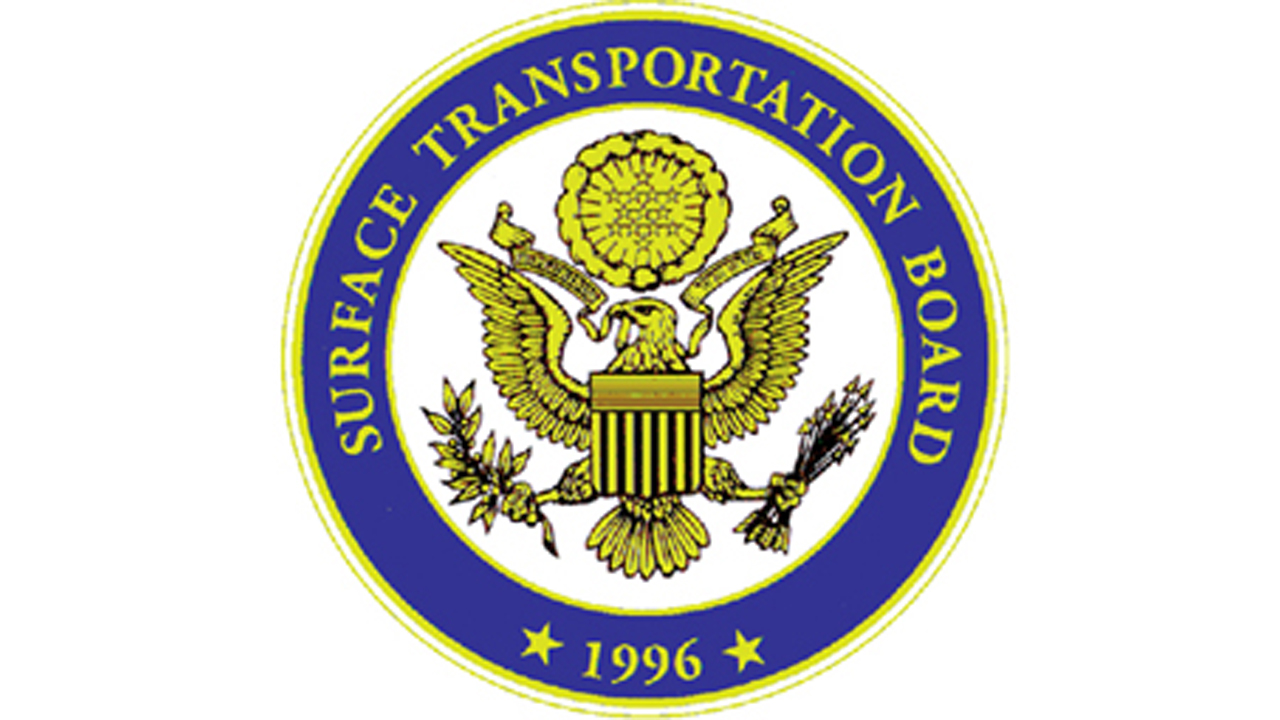
CSX, NS, UP, CN Renew Petition to Stay Requirement That Class I’s Commit to Arbitration Program
Written by Marybeth Luczak, Executive Editor
CSX, Norfolk Southern (NS), Union Pacific (UP) and the U.S. operating subsidiaries of CN on Feb. 3 renewed their request that the Surface Transportation Board (STB) stay its requirement that the Class I railroads commit to a new arbitration program for small rate disputes.
The two rulings are Final Offer Rate Review (FORR) Docket No. EP 755—described as “a voluntary arbitration program and an entirely new procedure for rate challenges”—and Joint Petition for Rulemaking to Establish a Voluntary Arbitration Program for Small Rate Disputes (Arbitration Final Rule), Docket No. EP 765.
“Either rate review mechanism will substantially improve shippers’ access to rate reasonableness reviews for smaller rate disputes,” STB said when it issued the rulings. It added that the Voluntary Arbitration Program will become operative “only if all seven Class I carriers commit to participating in the program for five years” and “if all Class I carriers do so, they will be exempt from the FORR procedure.”
According to the joint carriers’ Feb. 3, 2023 filing (download below), the STB’s September 2019 Notice of Proposed Rulemaking (NPRM) in this proceeding “proposed to allow a carrier to file its opt-in notice ‘at any time.’ The Final Rule [released Dec. 19, 2022] adopted a diametrically opposite approach, which required all seven Class I railroads to commit to five years in the arbitration program within 20 days of its effective date (‘Opt-In Deadline’). If they do not, the program will be ‘inoperable’ before it begins—the Board said that it ‘will not issue the notice commencing the new arbitration program’ unless all Class I carriers opt in to the program during the ‘limited window’ announced in the Final Rule.”
The joint carriers pointed out that the “program that the Board believes would be ‘the better approach’ for resolving small rate disputes would be defunct before it begins unless all seven Class I railroads opt in by February 23, 2023—regardless of whether appeals or petitions for reconsideration have been resolved by that date.”
The joint carriers said that the STB’s “decision to institute this Opt-In Deadline in the Final Rule is unlawful.” Why? Because, they said, it “failed to give notice of its intent to impose this draconian measure; departed from contrary agency precedent without explanation; failed to provide legally sufficient justification for its action; and contradicted its own reasoning in the Final Rule that carriers needed to know the contents of the arbitration program before making a five-year commitment to it.” According to the joint carriers, this “is one of the multiple issues presented in the petitions for reconsideration filed on January 24, 2023 [one by NS and UP and one by CSX; scroll down to download], and Joint Carriers hope that the Board will reconsider it.” However, if STB does not, they said, “the Opt-In Deadline will be challenged on appeal for its inconsistency with basic principles of the Administrative Procedure Act (‘APA’).”
The joint carriers noted that the STB’s “statement that the program will become ‘inoperable’ because the Board ‘will not issue the notice commencing the new arbitration program’ if it does not obtain universal opt-in before February 23 means that the harm caused by the Opt-In Deadline might not be repaired by a future decision by the Board or federal court that the Opt-In Deadline is invalid. Taken at face value, the statement in the Final Rule that the arbitration program will be ‘inoperable’ on February 24 if the Board does not receive seven unconditional opt-ins from the Class I railroads by February 23 would plainly constitute irreparable harm—i.e., the permanent loss of a superior option for rate disputes that could benefit railroads, shippers, and the Board.”
According to the joint carriers, “this harm is not speculative.” Each of them are “evaluating the arbitration program independently, and they may come to different conclusions about whether they are willing to opt in to the program. But every joint carrier agrees that requiring Class I railroads to make their opt-in decisions when the final contours of the program are uncertain pending reconsideration and appeals makes any railroad’s five-year commitment to the program far more difficult to support.”
The joint carriers said that they “believe that a Board decision to reconsider the Opt-In Deadline could include a provision to reopen the time for carriers to opt-in. But the Board’s statement that the program will be ‘inoperable’ if all Class I carriers do not make five-year commitments by the Opt-In Deadline suggests that it does not agree. And if the Board indeed intends to carry through with the Final Rule’s suggestion that the arbitration program will be abandoned if all seven Class I carriers do not opt in now, that abandonment of ‘the better approach’ would be irreparable harm.”
They explained that a railroad choosing “to opt in to the program in hopes that it will be improved after reconsideration would be irreparably harmed if reconsideration is denied—for the railroad would thus be locked for five years into a program that it might not otherwise have joined. Conversely, a railroad that chooses not to opt in to the program pending reconsideration would be irreparably harmed if reconsideration is granted—for even if the program is improved such that the railroad would like to participate, the door to entering the program would be closed. Simply put, the Opt-In Deadline attempts to force each Class I railroad to make a premature choice while restricting their ability to change that choice in the future. Forcing a choice that cannot be revisited is irreparable harm.”
STB in denying the initial petition for stay reasoned “that it could not ‘make the requisite finding that the [joint carriers] are likely to prevail on the merits’ because the petition did not ‘identify any merits-based argument for why the Board or a court would make a change to the program,’” the joint carriers reported. Because the STB’s initial stay denial was without prejudice, “providing joint carriers the opportunity to ‘file a new petition for stay within 10 days of the filing of petitions for reconsideration,” and such filings have been submitted, the joint carriers said that the “Board now has before it multiple ‘merits-based argument[s]’ regarding the arbitration program, and this rationale for denying the Initial Petition for Stay no longer applies.”
In sum, the joint carriers said they “respectfully renew their request that the Board stay the Opt-in Deadline until the resolution of reconsideration petitions and judicial review**.”
The next move: STB’s.
** STB on Jan. 4, 2023 provided notice of the following court actions:
- CSX Transportation, Inc. v. Surface Transportation Board and United States of America, instituted Dec. 29, 2022, in the United States Court of Appeals for the Eleventh Circuit, seeking judicial review of the Board’s Dec. 19, 2022 decision in Docket No. EP 765, Joint Petition for Rulemaking to Establish a Voluntary Arbitration Program for Small Rate Disputes.
- Grand Trunk Corporation and Illinois Central Railroad Company v. Surface Transportation Board and United States of America, instituted Dec. 29, 2022, in the United States Court of Appeals for the Seventh Circuit, seeking judicial review of the Board’s Dec. 19, 2022 decision in Docket No. EP 765, Joint Petition for Rulemaking to Establish a Voluntary Arbitration Program for Small Rate Disputes.
On Jan. 30, 2023, STB provided notice of a court action by the Association of American Railroads (AAR): AAR v. v. Surface Transportation Board and United States of America, instituted on Jan. 18, 2023, in the United States Court of Appeals for the District of Columbia Circuit, seeking judicial review of the Board’s Dec. 19, 2022 decision in Docket No. EP 755, Final Offer Rate Review, Docket No. EP 665 (Sub-No. 2), Expanding Access to Rate Relief.
Further Reading
Can STB Avoid Political Division?
STB Advances Rate Review Rulemakings for Small Rate Disputes



